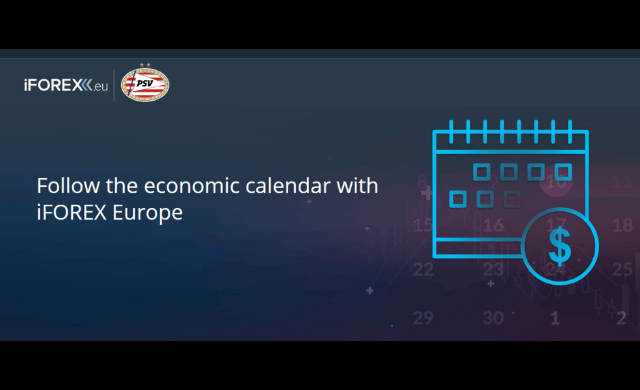Customize your economic calendar to align with your trading style by focusing on relevant events, filtering by impact level, and setting correct time zones. Integrate it with your trading platform, set alerts, and analyze historical data to refine strategies. Regular adjustments ensure the calendar remains effective in supporting your trading decisions.

Staying informed about economic events is crucial for traders and investors alike. An economic calendar serves as a vital tool, providing a comprehensive overview of scheduled economic releases and events that can significantly impact market movements. However, with the sheer volume of information available, it’s essential to customize your calendar to focus on the events that truly matter to your specific trading style and strategy.
Understanding the Importance of Customization
Every trader has a unique approach to the markets, whether it’s day trading forex pairs, swing trading stocks, or investing in commodities. The key to effectively using an economic calendar lies in tailoring it to align with your individual needs and preferences. By doing so, you can filter out the noise and concentrate on the events that have the most significant potential impact on your trades.
Identifying Key Events for Your Trading Style
The first step in customizing your economic calendar is to identify which events are most relevant to your trading style. For instance, a forex trader focusing on the EUR/USD pair would prioritize events from the Eurozone and the United States, such as interest rate decisions, GDP releases, and employment reports. On the other hand, a commodities trader might pay closer attention to events affecting oil prices, like OPEC meetings or U.S. crude oil inventory data.
Consider the case of Sarah, a day trader specializing in tech stocks. She customized her economic calendar to highlight events like the Federal Reserve’s interest rate decisions, consumer confidence indices, and tech sector earnings reports. This focused approach allowed her to anticipate potential market volatility and adjust her trading strategies accordingly.
Filtering by Impact Level
Most economic calendar tools allow users to filter events based on their expected impact level, typically categorized as low, medium, or high. For traders looking to streamline their focus, setting the filter to display only high-impact events can be particularly useful. These events are more likely to cause significant market movements and present trading opportunities.
However, it’s important to note that the impact level can vary depending on current market conditions. An event considered low-impact during normal times might suddenly become crucial during periods of economic uncertainty. Therefore, regularly reassessing and adjusting your filters is advisable to ensure you’re not missing out on potentially important information.
Customizing Time Zones and Date Ranges
One often overlooked aspect of economic calendar customization is setting the correct time zone. Ensuring that event times are displayed in your local time zone can prevent confusion and missed opportunities. Additionally, customizing the date range allows you to plan ahead, whether you’re looking at the week ahead or preparing for major events in the coming months.
Incorporating Technical Analysis with Economic Events
For traders who combine technical analysis with fundamental data, aligning your economic calendar with key technical levels can be incredibly powerful. For example, if a major support or resistance level coincides with a high-impact economic release, it could signal a potential breakout opportunity.
Take the experience of Mark, a swing trader who noticed that the U.S. Non-Farm Payrolls report was scheduled on the same day that the S&P 500 was approaching a significant resistance level. By having this information readily available on his customized calendar, he was able to prepare a strategy that accounted for both the technical setup and the potential fundamental catalyst.
Setting Up Alerts and Notifications
To ensure you never miss an important event, take advantage of alert and notification features offered by many economic calendar platforms. These can be customized to send reminders via email, push notifications, or even SMS, depending on your preferences. By setting up targeted alerts for the events most relevant to your trading strategy, you can stay informed without being overwhelmed by constant notifications.
Analyzing Historical Data for Better Preparation
Many sophisticated economic calendar tools offer access to historical data, allowing traders to analyze how specific events have impacted the markets in the past. This feature can be invaluable for developing and refining trading strategies. By studying historical patterns, traders can better anticipate potential market reactions and prepare accordingly.
For instance, a bond trader might analyze how previous Federal Reserve interest rate decisions affected Treasury yields, using this information to inform their trading decisions around future Fed meetings.
Integrating the Calendar with Your Trading Platform
For seamless workflow integration, consider choosing an economic calendar that can be directly integrated with your trading platform. This integration can provide real-time updates and allow for quick action based on economic releases, all without leaving your trading interface. Some advanced platforms even offer the ability to set up automated trading rules based on economic event outcomes, though this approach requires careful testing and risk management.
Regularly Reviewing and Adjusting Your Calendar
The financial markets are dynamic, and the relevance of different economic indicators can change over time. It’s crucial to regularly review and adjust your customized economic calendar to ensure it remains aligned with your evolving trading strategies and market conditions. Set aside time each month to assess which events have been most impactful and whether any new indicators should be added to your watch list.
Customizing your economic calendar is an essential step in developing a focused and effective trading strategy. By tailoring the calendar to highlight events that matter most to your trading style, you can cut through the noise of the financial markets and concentrate on the information that truly impacts your decision-making process. Remember, the goal is not to track every single economic release but to create a streamlined tool that enhances your trading efficiency and effectiveness.


 Hot Features
Hot Features













